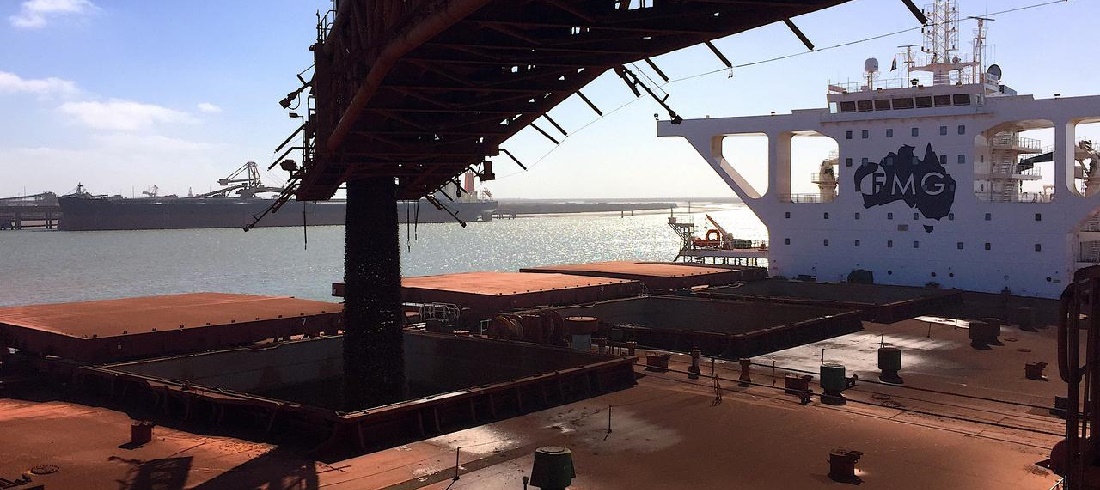
Brazil Iron Ore Market Share Remains Subdued Following Years of Discredit
Jun, 07, 2022 Posted by Gabriel MalheirosWeek 2202223
Brazil has witnessed its participation in the global iron ore market decrease in importance over the last 25 years. Nowadays, Australia controls 50% of the overseas trade of the item used as raw materials for steel. There is no prospect of Brazil regaining its market share, which was once 30%, over the next coming years.
That was Brazil’s share of the seaborne market in 1997, with Vale, MBR (Caemi group), Samitri, and Samarco as major iron ore exporters.
At the same time, Australia’s presence in the international market was only 20%, with Rio Tinto and BHP exporting practically 100% of output obtained in the Pilbara region. The two companies significantly expanded their production, and newcomer Fortescue Metals joined later, becoming the third-largest local production company and the fourth in the world.
Mining companies operating in Australia export more than 800 million tonnes a year, mostly to China. According to The Observatory of Economic Complexity (OEC), a tool that measures international trade, Australia secured more than 50% of the market around 2016/2017.
The share of Brazil in the iron ore market has fallen over the years, reaching around 17% by the same date. Currently, it is just above 20%, with Vale, CSN Mineração, and Anglo American. Together, they exported 340 million tonnes in 2019. Between 2000 and 2005, Vale acquired control of local competitors to consolidate iron ore assets.
Currently, the country’s share in the global market is the same as in 2010 and 2011 (20%). It suffered the shock of the departure of Samarco – a joint venture between Vale and BHP – towards the end of 2015.
See below the track record of Brazilian Iron Ore exports from January 2021 to April 2022. These data are from Datamar’s DataLiner.
Iron Ore Exports from Brazil | Jan 2021 – Apr 2022 | WTMT
Source: DataLiner (click here to request a demo)
Samarco, one of the largest producers of iron ore pellets globally, had to suspend 100% of its production in November 2015 after the collapse of the Fundão tailings dam in Mariana (MG). The company’s output was 28 million tonnes of pellets per year and 2 million concentrates.
The mining company gradually resumed production at the end of 2020, with a production capacity of 8 million tonnes. The company’s projections will double in 2026 and reach total capacity around 2029.
Another blow to Vale was the rupture of the Brumadinho tailings dam in January 2019, causing more than 270 human losses and a major economic-environmental disaster. This affected other company operations in Minas Gerais, which had to stop production on other similar dams.
As a result, Vale’s operations at several of its mines have been jeopardized as the company switched the tailings deposition mechanism from mud dams to dry stacking. It is expected that 100 million tonnes will be affected, with a sluggish recovery.
According to data from the World Steel Association, the seaborne iron ore trade exceeds the mark of 1.6 billion tonnes per year, based on 2019 and 2020 figures. Brazil shipped 340 million tonnes in 2019, while Australia exported 836 million.
According to José Carlos Martins, consulting partner at Neelix Consulting Mining & Metals, in addition to the two previously mentioned countries, the market – whose main buyer is China – is primarily kept active by South Africa, India, Canada, Russia, and Ukraine, as well as other smaller countries like Peru, Iran, Malaysia, and many others.
“No company has grown in Brazil. Vale suffered as a result of the Brumadinho tragedy and a lack of environmental licenses to reclaim mines. The corporation cannot grow even in Carajás [mine in the south of Pará, in the province of Carajás], where there were no incidents,” adds the expert.
CSN Mineração, which exports around 35 million tons, including ore from small mining companies in Minas Gerais, plans to expand production. In 2026, it expects to double the current volume and reach above 100 million tons/year in 2032.
Anglo American does not anticipate exceeding the current 26 million tonnes. The 20 million-tonne Bamin project in Bahia is contingent on the completion of the Fiol railroad and the development of a port facility in Ilhéus (BA). The Kazakhstan-based ERG company is looking for a partner to share the R$ 10 billion investment.
Source: Valor Econômico
To read the full original article, please go to:
https://valor.globo.com/empresas/noticia/2022/06/07/brasil-perde-lideranca-no-minerio-de-ferro.ghtml
-
Ports and Terminals
Feb, 11, 2021
0
CODEBA breaks record for January by handling over 1 million tons
-
Grains
Feb, 04, 2019
0
Strong soybean exports from Brazil, except to Russia
-
Other Cargo
Aug, 01, 2021
0
Plastic products sector increased exports during pandemic
-
Ports and Terminals
Apr, 10, 2019
0
Libra Terminais S.A. plans to maintain warehousing and cut staff by 50%

